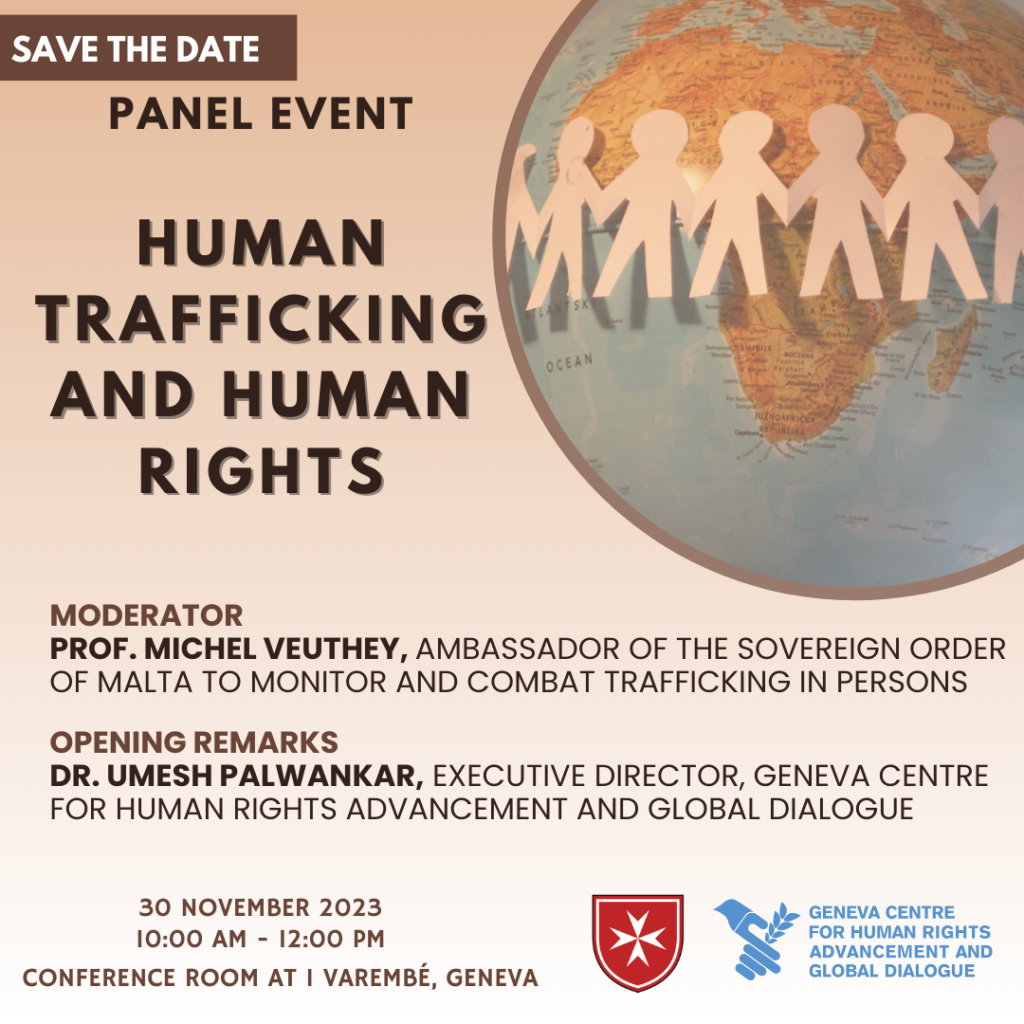Who: The Geneva Centre for Human Rights Advancement and Global Dialogue, in partnership with the Permanent Mission of the Sovereign Order of Malta
What: In-person panel event “Human Trafficking and Human Rights”
When: 30 November 2023, 10 – 12 pm (Geneva Time)
Where: Varembe 1, Geneva
A follow-up report, issued after the event, further provide a panel proceedings, Q&A session, and full statements of the panelists.
View the panel event’s concept note.
Human trafficking involves recruiting, transporting, transferring, harboring, or receiving people for the purpose of exploitation, whether through force, coercion, fraud, or some other form of deception. It is a form of modern-day slavery, a scourge that affects every region of the world.
Human Trafficking is a grave violation of human rights, affecting more than 50 million individuals worldwide. However, since human trafficking is a hidden crime and its definition is challenging, estimating its scale is difficult. A number of the practices associated with human trafficking are prohibited under international human rights law, including slavery, servitude, child sexual exploitation, forced marriage, and enforced prostitution.
Target 8.7 of the 2030 Sustainable Development Goals calls for states to take immediate and effective measures to eradicate trafficking, forced labour, and modern slavery.
The panel event intended to provide accurate and up-to-date information about the different forms of
contemporary slavery, including forced labor, human trafficking, child exploitation, and all other
contemporary forms of slavery; address misconceptions and stereotypes that hinder a comprehensive
understanding of contemporary slavery, emphasizing its global nature and its presence even in seemingly
developed nations; equip individuals with the knowledge to identify signs of contemporary slavery,
enabling them to take action by reporting suspicious activities and advocating for victims’ rights; create a platform for advocating policy changes at local, national, and international levels to strengthen anti-slavery laws and enforcement mechanisms; and encourage collaboration among NGOs, governments, businesses, religious congregations, and civil society to pool resources and efforts to combat contemporary slavery effectively.
Here you can find the full recorded event.
Here you can read the report.
***

